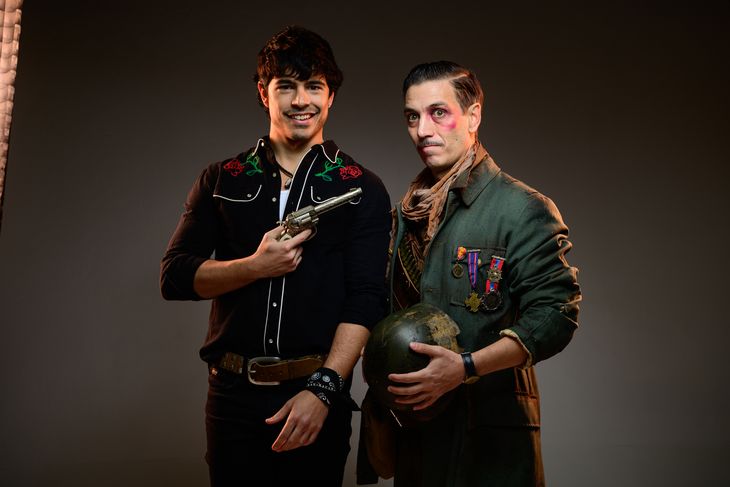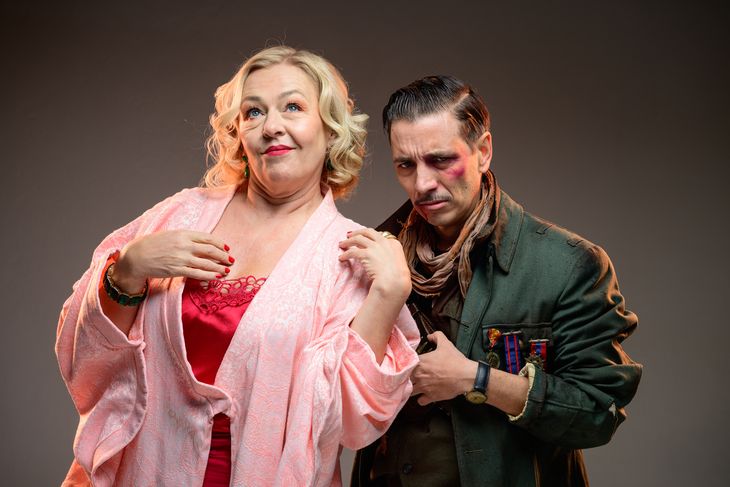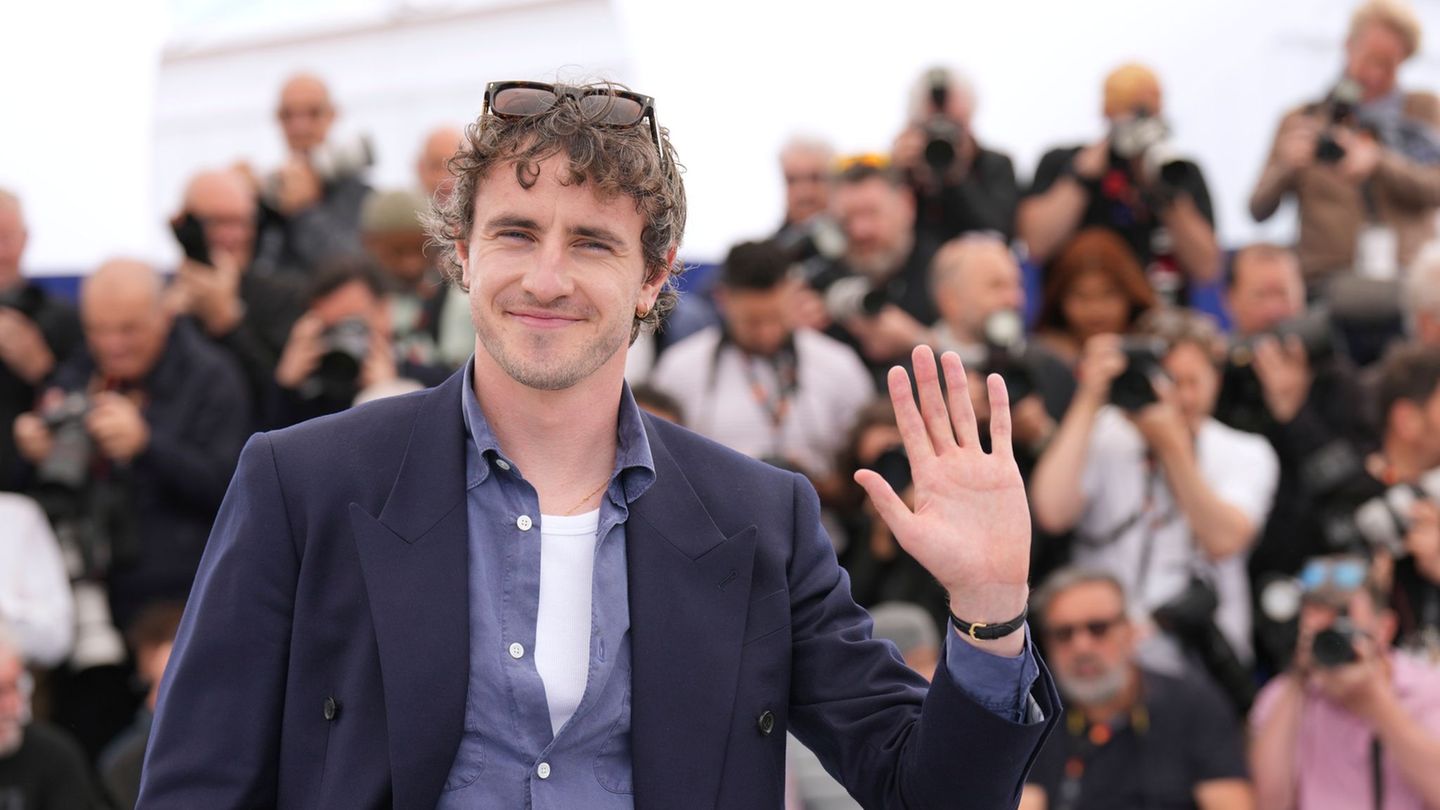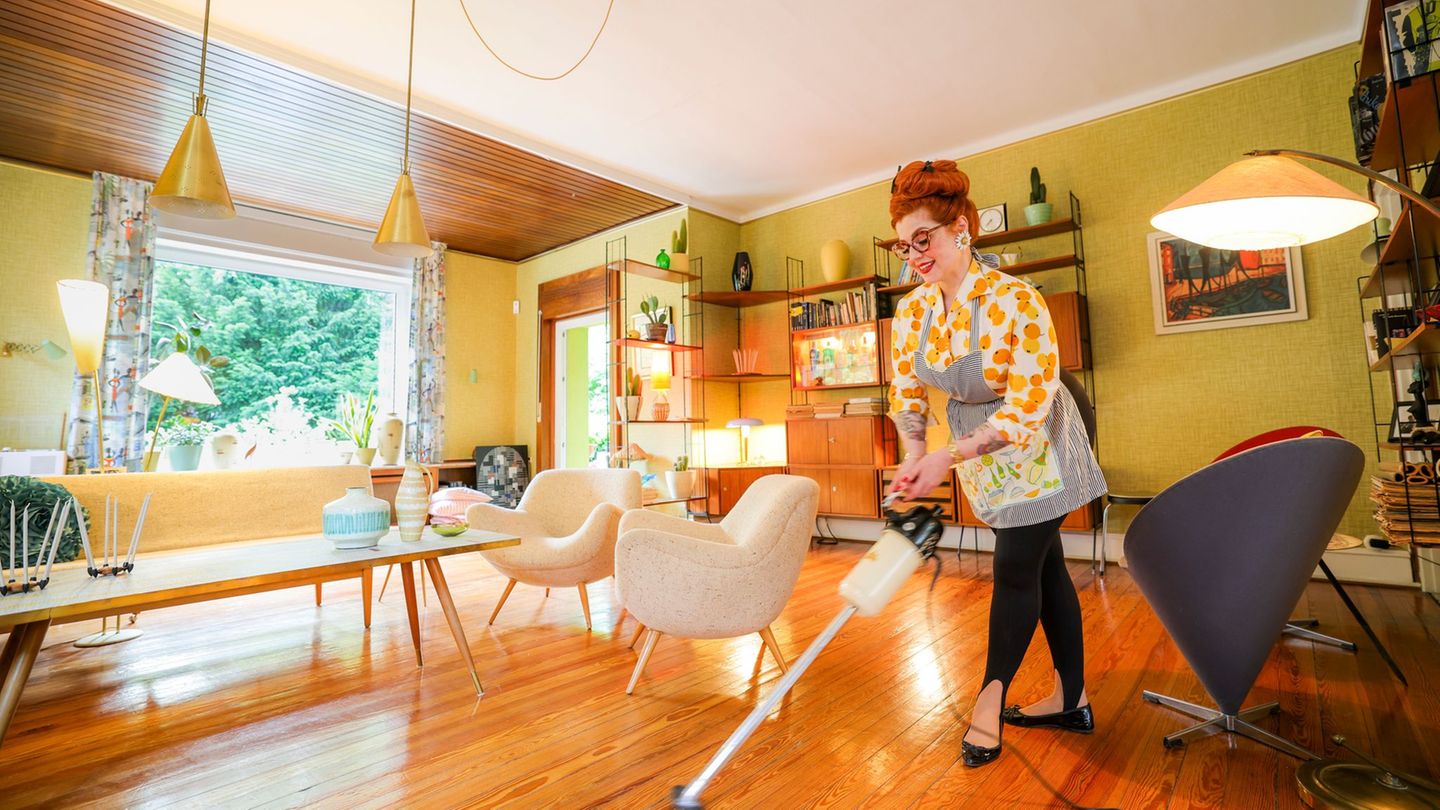“This work demystifies the behind-the-scenes of a huge industry,” says Nicholas Riera, co-author of “Motorhome” next to Alfredo Staffolani, both also actors in the play along with Thelma Fardin, Lili Popovich, Irune Porcel and Nicholas Di Pace. It premiered yesterday at the Metropolitan and will be shown on Wednesdays at 8pm. It immerses the audience in the chaotic world of a film shoot. The story follows the development of a western and focuses on the absurdities of filming, the tensions between the actors, the director and the rest of the crew.
“Cinema has something glamorous in the social imagination and the reality is that there is a behind that has none of that,” account Thelma Fardin. We talked with Riera and Fardin.
Journalist: Why did you want to investigate the chaos of filming?
Nicolas Riera: It came up while talking to Alfredo Staffolani, we collected anecdotes from the hours and hours of waiting that one has on a shoot. The actors always talk about that downtime, which in reality isn’t that much because a lot of things and conversations start to happen. They are spectacular because they combine different generations, for example there is one who is investing in the stock market, another with a clothing business, it mixes a bit with the scenes and what has to be acted out and ends up being the film within the film. It remains in the circle of actors, makeup, production but the public doesn’t know about it.
Q: What does the work tell about this area?
Thelma Fardin: Those who have been there will identify with it, and those who haven’t will feel that it dismantles a face of how production and life are done on these shoots. It’s not far from any other work environment. Even the catering, the plastic cutlery, the disposable cups, showing this fusion of worlds has something attractive.
Q: What is it like to experience filming?
NR: There is a special magic and in Argentina the conditions are almost always adverse for production. Guillermo del Toro said that your film is not necessary but you still have to make it and if there are people who join in and trust, everything is against all odds. In the filming you can see the artistic contribution of everyone, actors and technicians.
_Z8P3255.jpg
Lili Popovich and Alfredo Staffolani in “Motorhome”.
Q: How do you build bonds on set?
TF: In artistic spaces, one puts so much of one’s emotionality into it that knowing how one is in one’s life becomes inevitable. Two realities coexist, the invented one and the everyday one, and it is very different for all of us, we are of different ages and that is where the different connection of each one with the profession and with life is seen.
Q: Why did you choose the western, a genre rarely visited in Argentina?
NR: Because the characters are well-defined, the villain, the good guy, gives us a framework to create the characters visually, he gave us a direction to go in that became attractive. There is a lot of humor in the work around the western.
Q: What is your character like?
TF: I am the director of the western that is being filmed, totally inexperienced, and everything is getting out of hand. She has a lot of difficulties in interpersonal relationships, she believes that it can only be done through violence and orders. She allows herself impulses that we don’t usually allow ourselves in life, she has a lot of room to play and it goes against who I am, that is very funny. She treats people according to her idea of hierarchies, with the protagonist it is one way, with the meritorious person who doesn’t get paid it is another.
Q: How did the work evolve from the book to the production? What did the artistic departments add?
NR: The book was already very funny, we laughed a lot, and this is a risky bet because we go once a week and there are six characters. It has original music composed according to the climates; Ricardo Sica’s work is impeccable when it comes to lighting this failed western and something magical is generated that is little explored in commercial theatre. It is a fusion between off and commercial.
_Z8P3357.jpg

Nicolás Di Pace and Staffolani in this work about the chaos of a shoot.
Q: What are the themes of the work?
TF: There is a lot of talk about failure. My character thinks that everything can be solved with money, but it is clear that this is not the case. The personal failures of actors who have a dream are shown, and when they are called for a film they end up having very miserable situations. It shows the desire of each person and the failure. One dreams and when one makes it come true, sometimes one realizes that it was just the idea that one had in one’s head of what was going to make one happy.
Q: What is it like to do theatre today?
TF: As always, we try to ensure that no one comes out the same. During that hour we take them on a journey and we hope that something will change. Theatre has always been a place of cultural resistance. Today, faced with so much lack of work for the artistic world because the way of producing has changed and has migrated to platforms, it is a more delicate moment. So that is where we have to use our experience to promote theatre and culture.
Source: Ambito
I am an author and journalist who has worked in the entertainment industry for over a decade. I currently work as a news editor at a major news website, and my focus is on covering the latest trends in entertainment. I also write occasional pieces for other outlets, and have authored two books about the entertainment industry.




